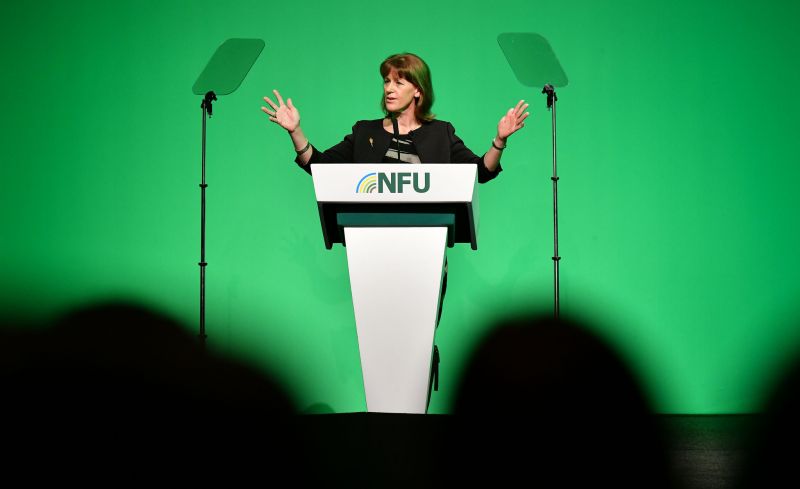US farmers could 'outcompete' UK farmers, NFU warns

Farmers in the United States could 'outcompete' British farmers in a trade deal with the US and UK post-Brexit, the NFU has warned.
Farmers fear a lowering of food production standards in any deal with the world's largest economy.
Some practices used in the US are currently banned by the European Union due to perceived safety concerns.
These include genetically-modified crops, chlorine-washed chicken and the use of hormones in beef production.
It's due to these differences that the NFU has concerns, warning that in any post-Brexit deal UK farmers could be 'sacrificed'.
Speaking on the BBC's Today programme, NFU president Minette Batters said the government must provide reassurance to farmers.
“Are we going to hold our nerve or are we going to be sacrificed? We need assurance from the prime minister,” she said.
“There is a huge difference in opinion in what's needed in a US-UK trade deal.
“Agriculture is always the last chapter in any trade deal to be ratified.”
The NFU is hoping to see EU rules and regulations on food production to be enshrined in UK law post-Brexit, but that it had 'not been agreed' by government.
Last week, the head of the American Farm Bureau argued that any new UK-US trade agreement post-Brexit must include US food standards.
Zippy Duvall, a poultry farmer in Georgia, said any deal between the two countries would be rejected by Congress if it didn't boost US farm exports.
He said such fears over chlorinated chicken and the use of GM crops were not 'science-based'.
“To have a trade treaty and not discuss agriculture would be turning your back on rural America and that’s where a big part of our population lives,” he said.
US National Security Advisor, John Bolton, recently said the UK will be 'first in line' for a trade agreement once the UK leaves the EU.
But a priority for the UK farming industry is a Brexit which first and foremost encourages free and frictionless trade in agri-food goods with the EU.
It also wants an immigration system that maintains access to a seasonal and permanent workforce.
Mrs Batters said Prime Minister Boris Johnson must look at a future agricultural policy which supports farmers as food producers and acknowledges the importance of domestic food production.








